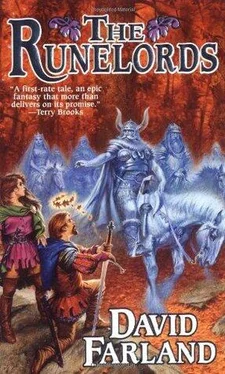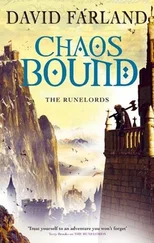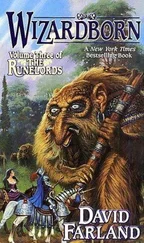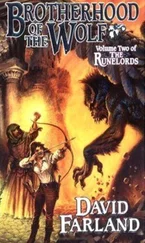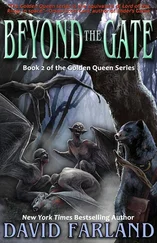David Farland - The Sum of All Men
Здесь есть возможность читать онлайн «David Farland - The Sum of All Men» весь текст электронной книги совершенно бесплатно (целиком полную версию без сокращений). В некоторых случаях можно слушать аудио, скачать через торрент в формате fb2 и присутствует краткое содержание. Жанр: Фэнтези, на английском языке. Описание произведения, (предисловие) а так же отзывы посетителей доступны на портале библиотеки ЛибКат.
- Название:The Sum of All Men
- Автор:
- Жанр:
- Год:неизвестен
- ISBN:нет данных
- Рейтинг книги:3 / 5. Голосов: 1
-
Избранное:Добавить в избранное
- Отзывы:
-
Ваша оценка:
- 60
- 1
- 2
- 3
- 4
- 5
The Sum of All Men: краткое содержание, описание и аннотация
Предлагаем к чтению аннотацию, описание, краткое содержание или предисловие (зависит от того, что написал сам автор книги «The Sum of All Men»). Если вы не нашли необходимую информацию о книге — напишите в комментариях, мы постараемся отыскать её.
The Sum of All Men — читать онлайн бесплатно полную книгу (весь текст) целиком
Ниже представлен текст книги, разбитый по страницам. Система сохранения места последней прочитанной страницы, позволяет с удобством читать онлайн бесплатно книгу «The Sum of All Men», без необходимости каждый раз заново искать на чём Вы остановились. Поставьте закладку, и сможете в любой момент перейти на страницу, на которой закончили чтение.
Интервал:
Закладка:
King Orden changed the conversation, talked with the innkeeper of days past, of hunts with Sylvarresta. Orden joked, “If the day should come that I'm king of Heredon, I suppose I'll have to invite you on my next hunt.”
“Indeed, I fear it is the only way you will keep me from poaching, Your Highness,” Stevedore Hark laughed, then slapped the King on the back, a touch so familiar that no one in Mystarria would have dared anything similar.
But Orden imagined that Sylvarresta had been slapped on the back by friends many times. He was that kind of man. The kind who did not have to be cold and distant to be kingly.
“It is agreed then, my friend,” Orden said. “You will come on my next hunt.” Orden changed the subject. “Now, tonight, Raj Ahten's army should come here and find that the bridge is out. I ask a favor of you. Remind them that Boar's Ford is shallow enough to cross.”
“Well, that's where they'd naturally go, isn't it?” Hark asked.
“They're strangers to this land,” Orden said. “Their spies may only have marked bridges on their maps.”
“You have a surprise in mind?” Hark asked. Orden nodded. “Then I'll tell them.”
On that note the innkeeper went back to work. Soon after, the rain let up, and King Orden took his leave of the inn, ready to set back out on the march.
He checked to make certain that the bridge at Hayworth was down, its huge beams and planks all safely stored, then let his men and horses finish their own brief meal.
His captains had purchased grain for the horses, and kegs of ale were opened for his troops. Though his men lost an hour in their ride, they felt much invigorated afterward.
So they set out on the road, much renewed, racing all the faster for Longmont.
They proceeded through the Durkin Hills for the rest of the afternoon, marching near the mountains to reach Longmont before sunset.
Castle Longmont sat on a steep, narrow hill among some downs, and had a cheery little town to its south and west. It was not huge, as castles go, but the walls rose incredibly high. The machicolations atop the walls were sturdily wrought. Archers could shoot through the machicolations or drop oil or stones on attackers from any part of the wall with little fear of reprisal.
The stonework on the walls was phenomenal. Many stones weighed twelve to fourteen tons, yet the stones fit together so cleanly, a man was hard-pressed to find a fingerhold.
Many considered Longmont unscalable. No one had ever achieved a successful escalade of the outer walls. The castle had fallen once, five hundred years earlier, when sappers managed to dig beneath the west wall, so that it collapsed.
Other than that, the castle had never been taken.
So as the troops neared Longmont, King Orden found himself longing for its safety. He felt unprepared for the scene of destruction before him.
The village at the base of the castle had been destroyed—hundreds of homes, barns, and warehouses, all burned to their foundation stones. Smoke curled up from some of the houses. No cattle or sheep grazed the fields. Not an animal was in sight.
The gray banners of Longmont rose on pennants on the castle towers, and had been draped over the castle walls. But the banners were all ripped and torn. Some few dozen soldiers manned the outer walls.
Orden had expected to find the village as it had been when last he saw it. He wondered if some great battle had been fought here, unbeknownst to him.
Then he realized what had befallen this land. The soldiers of Longmont had burned the town to its foundations and had brought in all the herds, expecting a siege by Raj Ahten's occupying forces on the morrow. By burning the city, they robbed the occupying forces of decent shelter. Here in these hills, with winter coming on, shelter would be a valuable commodity.
As Orden's little army rode to the castle gates, he saw relief on the faces of the soldiers stationed on the walls. Someone sounded a war horn, a short riff played only when friendly reinforcements were spotted.
The drawbridge came down.
As King Orden rode through the gates, men cheered from the castle—but so few voices.
He was not prepared for the sight that befell him: all along the walls inside the keep lay dead bodies and wounded townsfolk sitting in the open. Many wore armor—shields and helms robbed from Raj Ahten's defeated troops. Blood smeared the stonework along the outer wall-walks. Windows were broken. Axes, arrows, and spears sat stuck in the beams of buildings. A tower to a lordly manor had burned.
There, outside the Duke's Keep, the Duke himself hung from a window by his own guts, just as Duchess Emmadine Ot Laren had described.
Everywhere was sign of battle, few signs of survivors.
Five thousand people had lived here. Five thousand men, women, and children who fought with tooth and dagger to dislodge Raj Ahten's men.
They'd had no soldiers with heavy endowments and years of training. They'd had no great weapons. They had, perhaps, only an element of surprise, and their great hearts.
They'd won the day, barely. Then the families had fled, fearing retribution from Raj Ahten.
King Orden had anticipated that four or five thousand people would occupy this castle and town, people he could use to aid in his defense, people he could tap for endowments.
Chickens and geese roosted on rooftops inside the keep. Some swine rooted just inside the bailey.
Weak cheers greeted Orden, but they soon faded. One man called down from atop the Dedicates' Keep.
“King Orden, what news have you of Sylvarresta?”
Orden looked up. The man was dressed in a captain's smart attire. This would be Captain Cedrick Tempest, the Duchess's aide-de-camp, in temporary charge of the castle's defenses.
“Castle Sylvarresta has fallen, and Raj Ahten's men hold it.”
Cold horror showed in Captain Tempest's face. Obviously the man hoped for better news. He could not have had more than a hundred men. He could not really defend this castle, merely hold down the fort in hope that Sylvarresta would send aid.
“Take heart, men of Sylvarresta,” Orden called, his Voice making his words ring from the walls. “Sylvarresta has a kingdom still, and we shall win it back for him!”
The guards on the walls cheered, “Orden! Orden! Orden!”
Orden turned to the man riding next to him, Captain Stroecker, and whispered, “Captain, go alone, south to the Bredsfor Manor, and check the turnip garden. Look for sign of fresh digging. You should find some forcibles buried there. If you do, bring me twenty forcibles with the runes of metabolism, then cover the rest. Hide them well.”
King Orden smiled and waved to the ragged defenders of Longmont. It would not do to bring all the forcibles back here in the castle—not when Raj Ahten might attack, tear the castle apart in his search for them.
To the best of his knowledge, only three people alive knew where those forcibles lay hidden—himself, Borenson, and now Captain Stroecker.
King Orden wanted to make certain it stayed that way.
25
Whispers
Iome had been in the Dunnwood for only an hour when she first heard the war dogs bay, a haunting sound that floated up like mist from the valley floor behind them.
Wet splashes of rain had just begun to fall, and distant thunder shook the mountains. Contrary winds, blowing every which way, made it so that one moment the baying of the dogs came clear, then softened, then blew back to them.
Here, on a rocky, barren ridge, the sound seemed far away, miles distant. Yet Iome knew the distance was deceiving. War dogs with endowments of brawn and metabolism could run miles in a matter of moments. The horses were already growing tired.
“Do you hear them?” Iome shouted to Gaborn. “They're not far behind!”
Читать дальшеИнтервал:
Закладка:
Похожие книги на «The Sum of All Men»
Представляем Вашему вниманию похожие книги на «The Sum of All Men» списком для выбора. Мы отобрали схожую по названию и смыслу литературу в надежде предоставить читателям больше вариантов отыскать новые, интересные, ещё непрочитанные произведения.
Обсуждение, отзывы о книге «The Sum of All Men» и просто собственные мнения читателей. Оставьте ваши комментарии, напишите, что Вы думаете о произведении, его смысле или главных героях. Укажите что конкретно понравилось, а что нет, и почему Вы так считаете.
